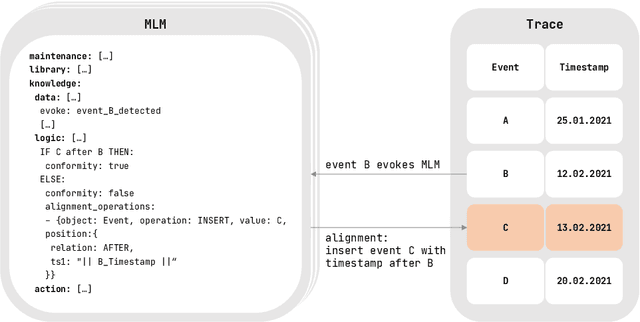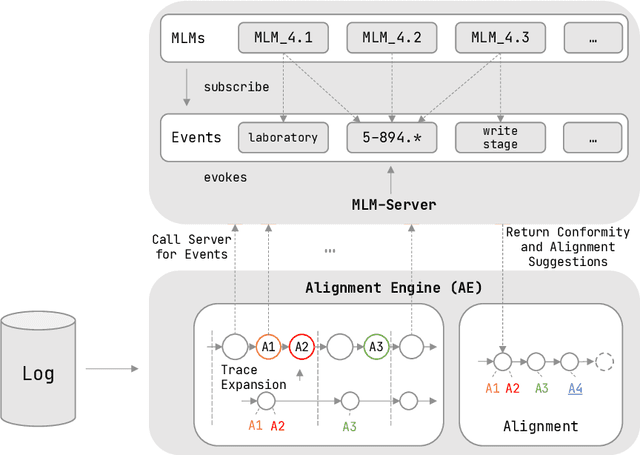Martin Kuhn
Data Petri Nets meet Probabilistic Programming (Extended version)
Jun 12, 2024Abstract:Probabilistic programming (PP) is a programming paradigm that allows for writing statistical models like ordinary programs, performing simulations by running those programs, and analyzing and refining their statistical behavior using powerful inference engines. This paper takes a step towards leveraging PP for reasoning about data-aware processes. To this end, we present a systematic translation of Data Petri Nets (DPNs) into a model written in a PP language whose features are supported by most PP systems. We show that our translation is sound and provides statistical guarantees for simulating DPNs. Furthermore, we discuss how PP can be used for process mining tasks and report on a prototype implementation of our translation. We also discuss further analysis scenarios that could be easily approached based on the proposed translation and available PP tools.
Declarative Guideline Conformance Checking of Clinical Treatments: A Case Study
Sep 20, 2022


Abstract:Conformance checking is a process mining technique that allows verifying the conformance of process instances to a given model. Thus, this technique is predestined to be used in the medical context for the comparison of treatment cases with clinical guidelines. However, medical processes are highly variable, highly dynamic, and complex. This makes the use of imperative conformance checking approaches in the medical domain difficult. Studies show that declarative approaches can better address these characteristics. However, none of the approaches has yet gained practical acceptance. Another challenge are alignments, which usually do not add any value from a medical point of view. For this reason, we investigate in a case study the usability of the HL7 standard Arden Syntax for declarative, rule-based conformance checking and the use of manually modeled alignments. Using the approach, it was possible to check the conformance of treatment cases and create medically meaningful alignments for large parts of a medical guideline.
 Add to Chrome
Add to Chrome Add to Firefox
Add to Firefox Add to Edge
Add to Edge